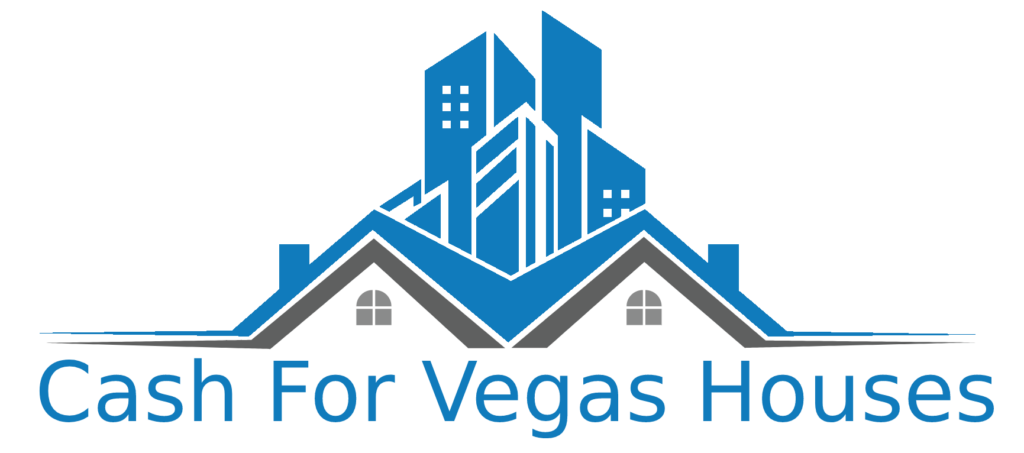Selling your home can be one of the most significant financial transactions of your life, and if you’re planning to sell your property in Las Vegas, NV, understanding how much money you’ll actually walk away with is crucial. Many homeowners are surprised to learn that their sale price is not the same as the amount they pocket after the deal is done. Various factors, such as realtor commissions, closing costs, and any remaining mortgage balance, play a large role in determining your final profit. This ultimate guide will help you navigate the complex process of selling your home in Las Vegas, showing you exactly what to expect and how you can maximize your proceeds.
Understanding Realtor Fees
One of the first questions most homeowners ask is: How much will I need to pay in realtor fees? In Las Vegas, the standard commission rate for real estate agents typically ranges between 5% and 6% of the final sale price. This fee is generally split between the buyer’s agent and the seller’s agent, with each taking a share of the commission.
For example, if you sell your house for $400,000 and the total commission is 6%, the real estate agents collectively will receive $24,000, which is split between both the buyer’s and seller’s agents. This means your realtor will likely take home about $12,000, while the buyer’s agent receives the other $12,000. However, this fee is usually paid by the seller, which means it will come out of your proceeds.
So, if you sell for $400,000, subtract the $24,000 in realtor fees, and you’re left with $376,000. While some sellers opt to go the “For Sale By Owner” route to save on these fees, working with a professional realtor often ensures that you get a higher sale price and a smoother transaction.
Proceeds vs. Profits from Home Sales
A crucial distinction to make when calculating your earnings from a home sale is the difference between gross proceeds and net profits. Many homeowners see the selling price of their home and assume they will get to keep the entire amount, but that’s not the case.
Net Proceeds
Your net proceeds represent the amount you receive after deducting all the costs associated with the sale. This includes realtor fees, any remaining mortgage balance, closing costs, and other expenses that come into play during the selling process. For example, if you sell your home for $400,000 and have a $250,000 mortgage remaining, that $250,000 will need to be paid off first. You then subtract other selling costs (such as realtor fees, staging costs, repairs, etc.), which leaves you with your net proceeds—the actual amount you’ll take home.
Let’s break it down:
- Sale Price: $400,000
- Remaining Mortgage: $250,000
- Realtor Fees (6%): $24,000
- Closing Costs: $8,000
- Net Proceeds: $118,000
In this example, your net proceeds would be $118,000. This is the cash you’ll pocket after the sale.
Profits
Profits are what’s left after you factor in all the money you’ve put into the house over the years, such as the initial purchase price, any major renovations, repairs, and other associated costs. For instance, if you purchased your home for $250,000 and later spent $20,000 on upgrades or repairs, then the profit is the money left after subtracting both the cost of purchase and your improvements from the sale price. So, profits are typically lower than net proceeds, especially when factoring in long-term costs like maintenance and upgrades.
Average Proceeds from Selling a House in Las Vegas
The housing market in Las Vegas has seen significant growth over the past decade, and as of 2023, the median home price in the area is around $400,000. However, the amount you walk away with after selling your home can vary widely depending on the factors discussed above. On average, most homeowners in Las Vegas can expect to keep between 85% and 90% of the final sale price as their net proceeds, once all expenses are deducted.
For example, if you sell a home for $400,000, your total net proceeds might fall between $340,000 and $360,000. The exact figure will depend on factors such as how much mortgage you still owe, whether you had to make significant repairs before selling, and any concessions you made to the buyer.
Typical Costs Associated with Selling a Home
When selling your house, there are a number of costs that reduce your final payout. Here’s a more detailed look at the most common expenses.
Mortgage Payoff Fees
If you still owe money on your mortgage, the remaining balance must be paid off before you can pocket any proceeds. It’s important to contact your lender ahead of time to get an accurate payoff amount, which includes any interest accrued since your last payment. For most sellers, the mortgage payoff is the single largest deduction from their sale proceeds.
Seller Concessions
In certain markets, especially when buyers have the upper hand, sellers may offer concessions to sweeten the deal. Seller concessions might include covering some or all of the buyer’s closing costs, which can reduce your final proceeds. If you’re selling in a competitive buyer’s market, concessions can be a crucial negotiating tool, but they come at a cost to your bottom line.
Homeownership Overlap Costs
Another often-overlooked expense is the cost of maintaining two homes at once, if you’ve already purchased a new home before selling your current one. If your home sits on the market for several months, you could find yourself paying for two mortgages, utilities, and insurance, which eats into your sale profits. Planning your move strategically, or selling quickly, can help you avoid this overlap.
Home Repairs and Staging Costs
In order to make your home as attractive as possible to potential buyers, you might need to invest in repairs or upgrades. Even small fixes—such as repairing broken appliances, repainting walls, or fixing leaks—can add up quickly. In some cases, sellers also pay for professional staging, which can make the home more appealing during open houses but adds to the costs. Depending on the condition of your home, these costs could range from a few hundred dollars to several thousand.
Closing Costs
In addition to realtor fees, sellers are responsible for paying certain closing costs, which generally range between 1% to 3% of the final sale price. These costs typically include title insurance, escrow fees, and prorated property taxes. On a $400,000 home sale, closing costs can range from $4,000 to $12,000.
Do You Pay Taxes When You Sell a House?
One of the major questions homeowners ask is whether they’ll owe taxes on the sale of their home. The good news is that many homeowners are exempt from paying capital gains taxes on the profits from the sale of their primary residence, thanks to the IRS’s capital gains tax exclusion.
If you’ve lived in the home for at least two of the last five years, you can exclude up to $250,000 of profit from taxes if you’re single, and up to $500,000 if you’re married. However, if your profits exceed those limits, or if the home was not your primary residence, you could be subject to capital gains taxes. Always consult a tax advisor to fully understand your potential tax liability when selling a home.
How Do You Make (More) Money Selling Your House?
Maximizing your profits from a home sale requires a mix of timing, strategy, and investment. Here are a few tips for getting the most out of your home sale in Las Vegas.
Listing Your Home with a Realtor
While some sellers choose to go the “For Sale By Owner” route to avoid realtor commissions, working with a realtor can often result in a quicker sale and higher offers. Realtors have access to the Multiple Listing Service (MLS), professional marketing tools, and a network of potential buyers, all of which can help ensure you get top dollar for your home.
Listing Your Home at the Right Price
Setting the right asking price is critical to attracting buyers and maximizing your proceeds. If you overprice your home, it may sit on the market for months, and you may eventually need to lower the price anyway. If you underprice it, you could leave money on the table. Work with your realtor to conduct a Comparative Market Analysis (CMA) to determine the optimal price for your home based on recent sales of similar properties in your area.
Listing Your Home in Spring
The time of year you list your home can impact how quickly it sells and for how much. Traditionally, the spring months are the busiest for real estate, with more buyers actively looking. Homes listed in the spring often sell for higher prices and in shorter time frames. If you can, try to plan your sale around this peak buying season.
Renovate Your Home
Making small, targeted renovations can help increase your home’s value and attract more buyers. Focus on high-return projects like updating kitchens and bathrooms, improving curb appeal, or upgrading old appliances. While you don’t want to overspend on renovations, smart investments can significantly boost your home’s sale price.
How to Calculate Profit from Selling a House?
To calculate your profit, you’ll need to subtract all costs associated with selling your home from the final sale price. Here’s a simple formula:
Profit = Sale Price – (Mortgage Balance + Realtor Fees + Closing Costs + Repairs + Staging Costs)
By breaking down each of these elements, you can get a clearer picture of how much money you’ll actually take home after the sale.



